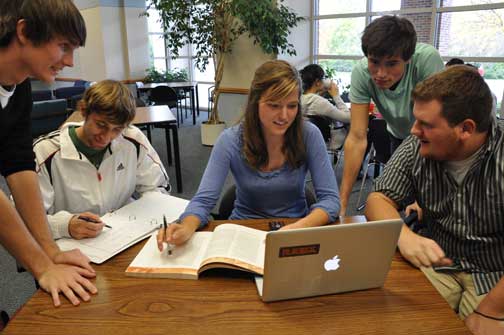
Eat at Noodles & Co. in downtown Lincoln from 4 to 10 p.m. Dec. 7. to help the UNL World Energy Project achieve its goal to install solar panels on the Koutiala Women's and Children's Hospital in Mali, West Africa in June 2012. Simply mention 'World Energy Project' (WEP) when ordering your meals and Noodles & Co. will donate 25% of proceeds to help fund WEP's upcoming projects.
The World Energy Project is a group of diverse University of Nebraska-Lincoln students - with majors ranging from engineering to architecture to finance - who believe that access reliable energy and clean water can change the lives of people in poverty around the world.
In 2012, the group will travel to Africa to work on two projects: the installation of a solar panels on a women's and children's hospital in Koutiala, Mali, and the installation of solar panels on St. Anne's Girl's School in Kapkemich, Kenya.
About the World Energy Project:
When Ashley Schmidt arrived in Mali, West Africa in 2008, she was struck by the fact that, for a place without reliable access to electricity, everyone seemed to have a cell phone.
Frequent outages plague the country, as high demand and poor energy infrastructure cause blackouts that last for hours or even days at a time.
Schmidt, who had just graduated from Burke High School in Omaha, was beginning a six-month internship at a women’s hospital in Mali when she had a realization: the cell phone technology used by Malians doesn’t need a massive electrical grid or landlines to work.
And if these Africans could bypass landline infrastructure to build localized cell phone towers, she thought, they could do the same with fossil fuels to localized renewable energy.
With this in mind, she enrolled in the University of Nebraska-Lincoln as an engineering major the following year and assembled a group of like-minded students to share her vision - to return to Mali to address the problem of electricity access.
And in June of 2011, they did just that. The team spent four weeks repairing solar panels, installing drip irrigation systems and building frames for a solar installation at a children’s home.
In the summer of 2012, the group is planning to return to Mali as well as Kenya to bring clean, reliable energy to hospitals and schools using solar panels.
The medical needs experienced by women and children in Mali are absolutely staggering, easily among the worst in the entire world. Approximately 1 out of 15 Malian women die in pregnancy or childbirth and 25% of children born here never see their 5th birthday.
With reliable, clean energy, hospitals could save thousands and save lives.
For example, the women and children’s hospital in Mali’s capital city spends nearly 22% of its budget on energy - money that could be spent on medical equipment or subsidizing care.